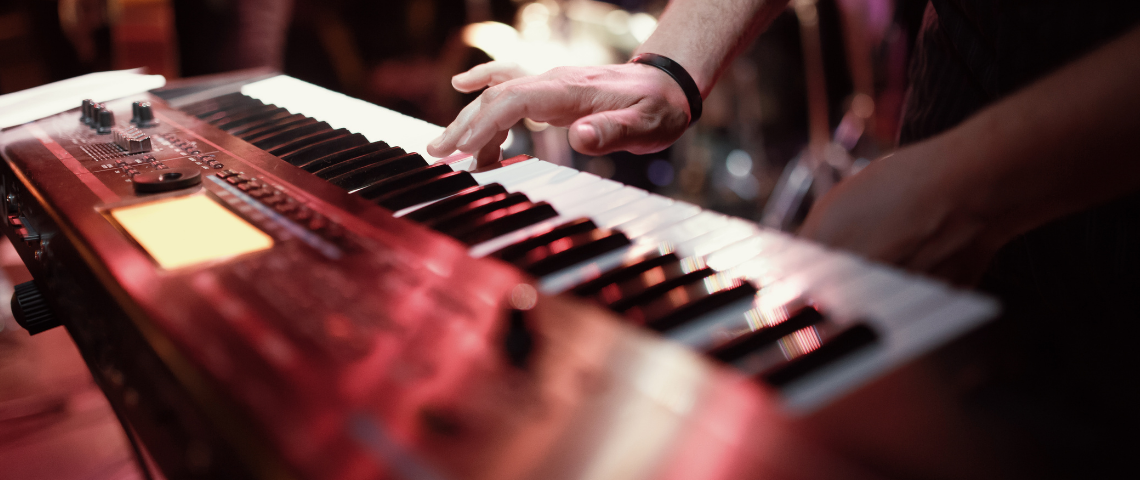Music that was artificially produced came about when synthesizers were born. We have to go back to 1952 to find out when the first synthesizer was developed, and to the late 1960s for when it was used in a group situation to perform music.
So, this article will begin by talking about synthesizers and then look at other ways that music is artificially produced.
Synthesizers
In 1952, it was RCA (Radio Corporation of America) developed the first synthesizer. The men responsible were Harry Olson and Herbert Belar. They had found a way to artificially create sound. Around the same time, Max Matthews would invent digital synthesis, allowing for unusual sounds to be created from digital signals.
The Monkees were one of the earliest groups to use a synthesizer during their performance. This was to play pop music. A synthesizer would feature throughout their 1967 album.
What synthesizers do is electronically generate and moderate sound. They will frequently use computers to do this, as can be observed on vintage 1980s performances from the Pet Shop Boys on TV music shows such as Top of the Pops.
Electronic Keyboards
In the past, electronic keyboards and organs would have sounds that resembled those of another instrument. It would almost be a backward step from the theatre pipe organs that had real instruments inside their chambers. It was, however, about portability. Then, technology came along that allowed the keyboards to play sampled sounds of the actual instruments, which proved much more realistic. Certain instruments had, after all, been hard to recreate. In particular, that of a saxophone.
Inside an electronic keyboard, when the white and black notes that are the same as on a piano, are depressed, it will connect to switches that trigger the electronic circuits and then generate the sound. Most of these keyboards will still use a matrix circuit to reduce the amount of wiring that is necessary.
The electronic keyboard can also find itself installed into a piece of furniture to then be known as an electronic organ. It will then have greater capabilities and sound that come through larger inbuilt speakers. Leslie speakers were considered to be the best in the 1970s and are still available. However, these days, similar effects are possible via digital emulation from analog electronic devices. The chorus and phase shifter devices are capable of giving an approximation of the sounds that were once produced by Leslie speakers.
AI and Music
Various software programs have been developed that use Artificial Intelligence to produce music. AI will also drive interactive composition technology when it comes to a computer composing music in response to live musicians playing.
An AI studio tool can now, through analyzing large datasets of recordings, work out the optimum compression setting that can be used on a variety of different genres. AI can speed up what could otherwise be a repetitive and time-consuming studio process.
Although we are still a distance away from this kind of intelligence being used to create hit songs, there is no doubt that creative industries are also starting to benefit from things that are artificially created without human intervention.
In conclusion, the music world has both natural and artificially produced sounds at its disposal. Synthesizers, seen now as something of an icon of the 1980s, revolutionalized the music scene at the time when they appeared on many a hit. Electronic keyboards are becoming ever more advanced by moving away from the more artificially produced sounds to sampled sounds that are those recorded from the actual instrument. The music industry is, however, still likely to be taken over by computer technology again when artificial intelligence is used more to produce much of its music. Nobody could have imagined that the computer, when invented, would have ever become that creative.

